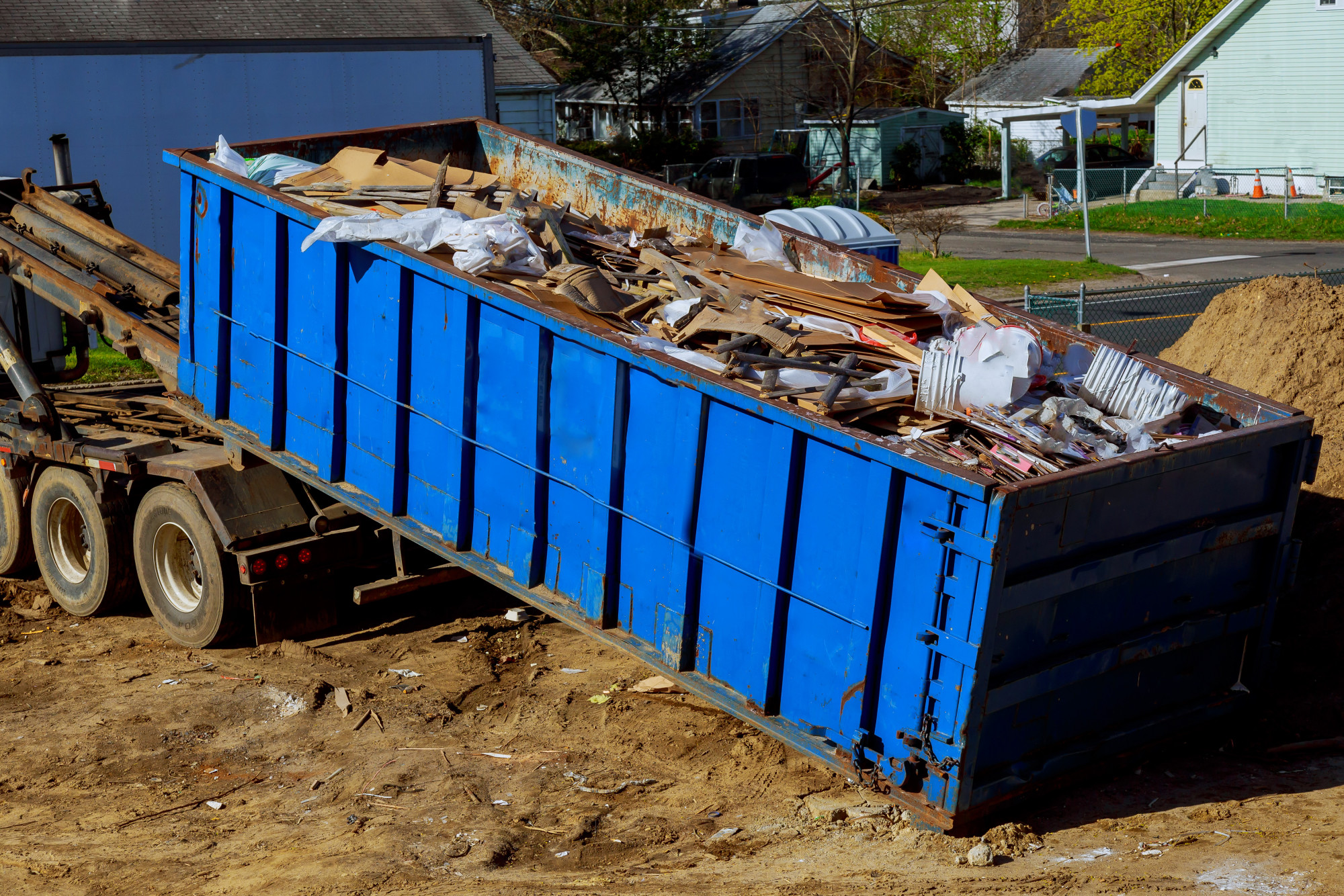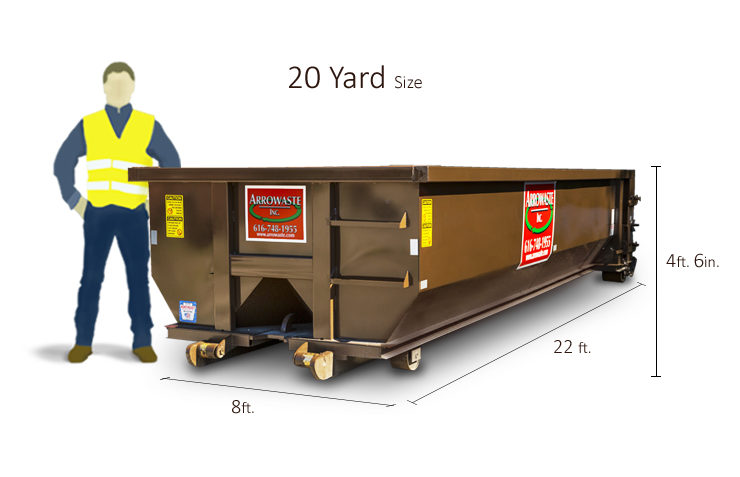When it concerns dumpster rentals, success depends upon mindful preparation and attention to information. Begin by comprehending local regulations, choosing the appropriate dumpster size, and selecting a reputable rental company Recognize what can and can not be gotten rid of, and plan for efficient waste disposal Do not forget to protect essential permits and licenses, and take care of dumpster positioning logistics to avoid concealed costs and fees. By complying with these crucial tips, you'll be well on your method to a seamless and economical dumpster rental experience; now, take the next step to guarantee your task goes off without a hitch.

Understanding Neighborhood Regulations
When it concerns dumpster rentals, maneuvering local regulations can be a major obstacle. Recognizing what is allowed and what is not in your area is important to staying clear of costly penalties and ensuring a smooth rental experience. Each city or community has its very own set of guidelines and policies governing dumpster placement, permits, and waste disposal
Before leasing a dumpster, research the specific guidelines in your area. Consult your local government or public works division to identify if you need a permit to position a dumpster on your property.
Some locations might have restrictions on the size or type of dumpster you can make use of, or may require you to comply with details standards for garbage disposal. In addition, understand any type of noise or time restrictions that might influence your dumpster rental.
Choosing the Right Dumpster Size
A construction website's worth of debris can collect rapidly, making it critical to pick a dumpster size that can handle the volume of waste Falling short to do so can result in costly overflows, task hold-ups, and safety hazards.
To avoid these concerns, consider the kind and amount of waste you'll be creating. For small-scale projects, such as washroom improvements or minor cleanings, a 10-15 backyard dumpster may suffice. Larger projects, like major remodels or new construction, might need 20-30 yard and even 40 lawn dumpsters.
When approximating your waste quantity, consider the weight and bulk of products like concrete, asphalt, or roof covering materials. It's better to err on the side of caution and opt for a larger dumpster than to take the chance of running out of space mid-project.
Additionally, be mindful of any kind of local regulations or area constraints that may impact your dumpster dimension option. By choosing the ideal dumpster dimension, you'll assure a smoother, a lot more efficient project that remains on track and on budget.
Selecting a Credible Rental Company
With the best dumpster size in position, interest transforms to locating a rental company that can deliver on its assurances. A reliable rental business is vital to a successful dumpster rental experience.
Research is crucial to making an educated choice. Begin by asking good friends, family members, or next-door neighbors who have rented out dumpsters in the past for referrals. Online reviews and scores can additionally give valuable understandings right into a company's reliability and customer service.
When assessing prospective rental business, consider their experience, licenses, and insurance coverage. Validate they have the needed licenses to run in your location and can supply proof of responsibility insurance.
A reliable company will certainly additionally have a clear and clear pricing framework, without surprise costs or surprises. Additionally, try to find business that supply flexible rental periods and a variety of dumpster sizes to suit your specific needs.
Knowing What Can Be Thrown Away
Understanding what can be thrown away in a dumpster rental is important to prevent any type of prospective concerns or extra charges. Recognizing what can and can http://piedmonttriaddumpsters.timeforchangecounselling.com/dumpster-rental-for-building-and-construction-projects-in-5-steps not be disposed of in a dumpster leasing is essential to assure a smooth and hassle-free experience.
Most dumpster rental firms enable household trash, building and construction debris, and backyard waste to be thrown away. However, hazardous materials such as batteries, electronics, and chemicals are typically prohibited.

Additionally, some firms may have specific guidelines for items like tires, appliances, and furnishings. It's important to review the rental business's guidelines before filling the dumpster to prevent any type of surprises.
Some items, like mattresses and box springs, may call for special handling and disposal, which can result in additional fees. By understanding what can be thrown out, you can prepare as necessary and avoid any kind of unexpected costs or complications.
Dealing With Permits and Licenses
Compliance with neighborhood regulations is an essential element of dumpster service, and getting the necessary permits and licenses is an important step in the process.
Failure to do so can result in penalties, fines, and even task hold-ups. It's crucial to look into the specific regulations in your area, as they differ from city to city and even in between neighborhoods.
Typically, authorizations are needed for dumpsters put on public property, such as streets or sidewalks.
However, some locations may also need authorizations for dumpsters on private property. Make certain to contact your city government to establish the specific demands for your project.
Additionally, some dumpster rental business may obtain the necessary authorizations on your behalf, so be sure to inquire about their permitting process when picking a provider.
Managing Dumpster Positioning Logistics
Efficiency is essential when it pertains to taking care of dumpster positioning logistics, as a well-planned deployment can make all the distinction in the success of your task. A thoughtful approach to dumpster positioning warranties that your waste administration needs are met, and your project remains on track.
When preparation dumpster logistics, consider the size and type of dumpster you need, taking into consideration the quantity and kind of waste you'll be producing. Confirm the picked dumpster fits conveniently in the marked area, leaving enough room for simple access and appropriate ventilation.
Additionally, consider the flow of traffic around the dumpster, staying clear of positioning in high-traffic areas or near fire hydrants, electrical boxes, or other delicate infrastructure.
Proper dumpster positioning likewise includes coordinating with your rental company to arrange timely distributions and pickups Be prepared to offer clear instructions on where the dumpster should be positioned, and verify that the location is clear of any type of obstacles or debris.
Avoiding Hidden Costs and Charges
When securing a dumpster rental, it's important to scrutinize the rental agreement to stay clear of covert fees and fees that can rapidly add up and blow your task budget.
A complete evaluation of the agreement can help you recognize possible mistakes and guarantee you're getting the best offer possible.
Some usual concealed fees to keep an eye out for consist of:
- Fuel surcharges: Some dumpster rental firms might bill additional for fuel costs connected with delivering and getting the dumpster. Overweight fees: If the dumpster exceeds the weight restriction specified in the rental contract, you may be billed additional fees. Extension fees: If you need to keep the dumpster longer than originally agreed upon, you might sustain added charges for each day beyond the initial rental period.
Planning for Efficient Waste Disposal
Properly preparing for waste disposal is pivotal to ensuring a seamless and affordable dumpster rental experience
It's essential to recognize the type and amount of waste produced throughout your task, as this will certainly assist determine the right dumpster size and rental duration. Take into consideration the materials you'll be getting rid of, such as building and construction particles, house items, or lawn waste, and approximate the volume of waste as necessary. This details will enable you to pick the most appropriate dumpster dimension, staying clear of unnecessary costs connected with renting out a dumpster that's too big or as well small.
Additionally, preparing for effective waste disposal entails marking a convenient and easily accessible location for the dumpster on your site. Validate the area is clear of obstacles, permitting easy loading and unloading of waste.
You needs to also develop a waste partition plan to different recyclable materials from non-recyclable waste, promoting ecologically liable practices.
